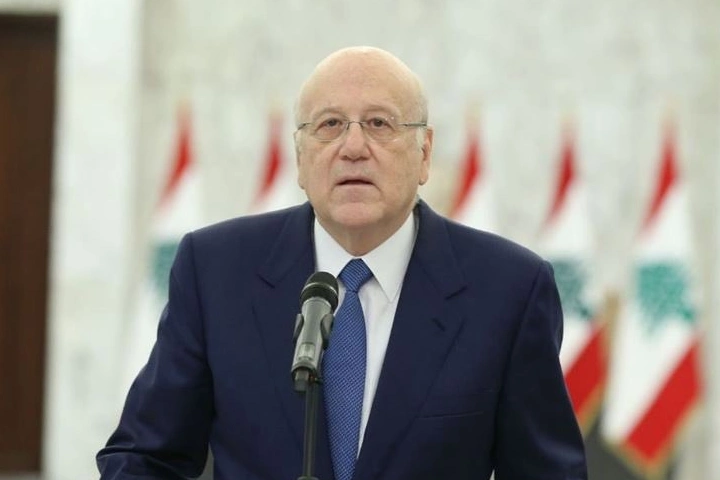Hatching away from the glare of media limelight, Lebanese Prime Minister Najib Mikati has prepared a peace plan to put an end to the Israel-Hamas conflict in Gaza. His peace initiative is the result of hurried tours to Western capitals and visiting heads of states in the Middle East.
In an interview with the Economist, he outlined his scheme.
First, he suggests a five-day humanitarian pause to fighting and in the meantime Hamas would free some of the hostages, civilians and foreigners as priority. At the same time, Israel would keep ceasing fire so that humanitarian aid could be moved to all parts of Gaza. Hamas would also concurrently stop firing rockets. If this first experiment works, Mikati suggests that the second stage would be to make it permanent. Later, Mikati hopes, Israel and Hamas could opt for further prisoners-for-hostages swap with the help of intermediaries.
Western and regional leaders would then begin work on the third stage: an international peace conference for a two-state settlement for Israel and Palestine. “We will consider the right of Israel and the right of the Palestinians,” Mikati told the Economist, adding, “It’s time to make peace possible in the whole region.”
Mikati hopes that once such a peace plan would take off and find permanent regional backers, armed groups like Hamas and Hezbollah can be asked to shun arms and join the mainstream of regional politics and development.
If it can get off the ground, Mikati’s proposal would channel the worst violence Israelis and Palestinians have seen in decades into the most serious peace effort since the collapse of the Oslo Accords.
❇️ Iranian FM meets Lebanese PM on #Palestine
✅Iranian Foreign Minister Hossein Amirabdollahian met with Lebanese Prime Minister Najib Mikati on Friday during his trip to Beirut and said holding talks with the Lebanese brothers and exchanging views with them have always been… pic.twitter.com/zuMNgH1mao
— Foreign Ministry, Islamic Republic of Iran 🇮🇷 (@IRIMFA_EN) October 13, 2023
Flight and Descent of Peace Formula
The Mikati plan’s success hinges on Western support, which remains uncertain. While some nations advocate for a humanitarian ceasefire, key players like the US, Britain, Canada, France, Germany, Japan, and Italy, emphasise temporary “humanitarian pauses,” upholding Israel’s right to self-defense. This stance could undermine the potential backing for Mikati’s proposal.
Foreign Policy magazine acknowledges the plan’s imperfections, particularly its vague stance on the future of Hamas and its combatants during the ceasefire. Yet, it emphasises the need for global middle powers to assist in refining and supporting Lebanon’s peace proposal.
“It is a plan that is as ambitious as it is unlikely to succeed. But as Israel’s brutal incursion into the Gaza Strip continues, with indications that it could last indefinitely, Mikati’s plan may be the best one we have, and its odds of success are directly correlated with who chooses to join the effort. And it’s certainly better than the modest, fragmented, and incoherent positions of Western leaders to date,” said Justin Ling, a Toronto-based journalist who specialises in West Asia affairs.
In his last leg of tours in the region, Mikati met with the Iranian ambassador in Beirut, highlighting his ability to serve as an interlocutor with Tehran. On Saturday, he met with Egyptian President Abdel Fattah al-Sisi, who has become the guarantor for aid deliveries to the Gaza Strip. Days earlier, Mikati met with the emir of Qatar, whose country has hosted Hamas’s senior political leadership for the past decade.
Observers say that apart from convincing Western powers, getting Arab leaders on the table with a direct endorsement of the Israeli state would be difficult, yet, they say, it is achievable. Even Iranians could come on board.
“Lebanon is particularly anxious about avoiding broader regional conflict, particularly as it would likely involve Hezbollah, an armed group with 100,000 fighters that operates independent of Mikati’s government. But they’re not the only ones. Destabilisation in the region could be ruinous for Iran’s regime, already facing pressure from years of domestic unrest. Qatar, meanwhile, is keen to flex its regional leadership.
Speaking to the Economist, Mikati was bullish on the idea that he could untangle the complex Arab politics, at least. “If we have (an agreement on) international and comprehensive peace, I am sure (Hezbollah) and Hamas will lay down their weapons,” he said. He further predicted that “the Iranians will be part of a comprehensive peace.”
There is one hurdle in the success of Mikati’s plans: Mikati may have connections, but he lacks clout. And his plan, thus far, has floundered. Mikati has found no converts in the West, at least so far (his plan was unveiled in the beginning of November) Given that Lebanon has no formal diplomatic relations with Israel — a reality that is unlikely to change, given that Beirut is pursuing war crimes charges for the deaths of civilians in Gaza — it will need to win over Israel’s friends.
A confidant of Mikati however has told Lebanese media that his connections in the West, the Gulf and Iran make Mikati uniquely placed to sell an inclusive plan to end “forever war of the Middle East.”




















